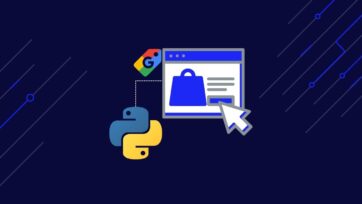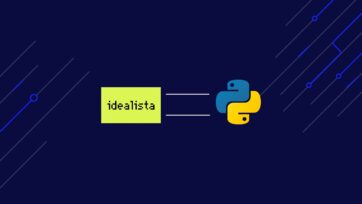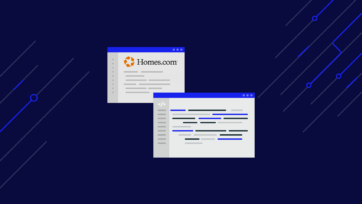In today’s e-commerce-driven world, web scraping is everywhere, from established powerhouses like Amazon who build their own system to smaller startups who need to find the right scraping service for their needs.
Without actionable data like customer reviews and real-time price tracking, you know you simply won’t remain competitive for long.
Actionable data is fast and reliable, and for that you need a robust proxy list pool and an efficient way to keep them organized. This can be extremely challenging for even the best scrapers.
These problems include finding only relevant, high quality and dependable data; efficient pool management; and dealing with a huge volume of requests. Let’s dive into these issues and how the best scrapers find solutions.
The problem: Compiling the precise data you’re looking for
Relevant data – such as specific product types and prices – is largely based on your target customer’s location.
The best way to get it is often by requesting data from a variety of zip codes. For that, you’ll need an expansive proxy pool that has access to all these places and the intelligence to decide which place needs which proxy.
Manual configuration is fine for basic, local needs; but if you want to increase your scale to more complicated scraping projects, you’ll need a “set it and forget it” automated proxy selector.
The problem: Working smart, not hard at proxy management
If you’re doing scraping on a small scale, say one or two thousand pages a day, simple management is totally possible with well-designed web crawlers in a sufficiently large pool.
But if you want to play with the e-commerce bigwigs, you need bigger and better scraping capabilities, and those present a number of frustrating issues:
- Errors when retrying – Your proxy has to know how to use different proxies to keep trying when it runs into walls like bans, timeouts and errors
- Identifying and fixing bans – Your proxy should be able to sense and resolve bans like blocks, ghosting, redirects and captchas. It will only be able to resolve them by creating and maintaining a unique ban database for each website you want to scrape.
- Requesting headers – Robust web crawling requires steady rotation of cookies, user agents and other types of headers.
And that’s just the tip of the iceberg. For example, you’ll want the ability to perform geographical targeting, meaning that a select few proxies will be used on certain relevant sites. There will be times when the data you’re after needs to be scraped all in the same proxy session, and you need to make sure your pool can handle that. Finally, keeping your spiders under their cloaks while visiting a site wary of them requires throwing in random delays and regularly changing request throttling.
To solve these complicated challenges, you need a proxy management infrastructure with a strong logic component. It has to manage your sessions, automatically retry requests and get around blacklisting techniques, differentiate between bans, select locally relevant IPs and more tasks listed above.
But if you’re shopping for a solution that claims to streamline these things for you, chances are it only offers simple logic rotation in its proxies. So that means you still have to build up a more intelligent management layer on the existing simple proxy. And that takes up even more time that your team could be analyzing data.
What if there was a one-stop shop solution that does it all for you? We’ll discuss that a bit later in this article.
The problem: Finding data that’s both high quality and reliable
Everything we’ve discussed thus far is crucial to developing a good proxy management solution for web scraping on a larger scale, but the two most important factors are quality and reliability. After all, you can’t find the data you need without a dependable process, and if all you’re finding is useless data, you won’t get very far.
The COVID-19 pandemic has made these characteristics even more urgent. Item prices are fluctuating pretty much constantly as companies struggle to keep employees, and especially if you’re a small business or a startup, you’re at a much higher disadvantage than your more experienced competitors. You can’t control what or how much they’re making, but with the right data extraction tools, you can get a leg up on your rivals price-wise.
Running a business in a pandemic is hard enough – even before it hit, getting only helpful and relevant data was critical to e-commerce businesses ability to stay competitive. Now that more customers are shopping online than ever before, you just can’t afford to have a shaky data feed. Even a disruption just a couple of hours long can mean your prices will be out of date by the following day.
Another thing to think about is how to outsmart cloaking – a technique used by larger sites that involves feeding incorrect data if they suspect web scrapers. It’s hard to get anything done if you can’t be sure the data you’re finding is real.
So there’s even more evidence for you on why a fully-developed and dependable proxy management system is an absolute must. Automating the process can make manual configuration and troubleshooting, as well as questionable data, a thing of the past.
The problem: So many requests, so little time
Data scraping isn’t exactly a well-kept secret anymore. More than 20 million requests are made every single day, and pools without thousands of IPs to choose from will certainly get lost in the chaos.
The ideal pools aren’t just huge; they have a lot of variety in what types of proxies are available. These can include residential, datacenter, location and more. Variety equals precision, and with the incalculable amount of data out there, precision is a must.
Maintaining all of these pools is sort of like juggling spinning plates for your development team – eventually, something’s going to come crashing down without constant vigilance. And there’s just no way humans can do this without spending too much time on the proxies and not enough on the data.
Extracting data at the high level you need demands that your proxy management style is highly intelligent, sophisticated and most importantly, automated.
So what’s the best way to manage all those proxy layers? The most successful e-commerce companies are learning how to solve these problems.
Okay, so what’s the best all-in-one proxy solution?
When it comes down to it, scraper development teams can do one of two things to build up a strong, capable proxy infrastructure. They can build the whole thing from the ground up themselves, which can be inefficient in this modern marketplace; or they can find a solution that does all the heavy lifting for them.
Option 1: DIY Proxy Management
You might have your own proxy infrastructure already in place, but it may not completely cover all the challenges we’ve discussed in this article like IP rotation, bans and blacklisting intelligence.
But what if you could focus more on just the data and less on proxy management? If you’re on the level of most other e-commerce sites and dealing with an average of 300 million requests every month, you’re probably better off opting for total outsourcing using a single endpoint solution.
Option 2: Streamlining with an all-in-one endpoint solution
Now that we know that single endpoint solutions really exist, you’ve probably figured out that we recommend one. These providers can wrap everything up in one neat package that disguises all the ugly, complicated processes behind proxy management. Achieving high-level data scraping is exhausting enough; you don’t have to reinvent the wheel to succeed.
Pretty much everyone besides the market’s largest companies have chosen this option. ScraperAPI’s proxy service handles 5 billion requests for over 1,500 companies worldwide. Every aspect of proxy management is done for you, quickly and efficiently.
What makes ScraperAPI different from other automated solutions out there?
For one thing, certain proxy types (e.g. residential) can be extremely expensive – sometimes as much as ten times the cost of our proxies, which yield comparable results. One million requests through certain other services can cost up to $500; with ScraperAPI, you can get one million requests through for just $80.
When your spiders send us a request, we sort through all the roadblocks and send you back only the data you want. No need to worry about blocks and captchas, as we rotate IP addresses from a pool of over 40 million proxies with every single request, even retrying failed requests automatically.
Stay in control of your web scraping by customizing your request headers, geolocation and much more. Javascript isn’t a problem, nor is reusing IP addresses across sessions. Unlimited bandwidth means you’re only charged for successful requests. Scrape any page in the world with a simple API call, and try out your first 1000 without paying a dime.
And you’re never alone when you’re crawling with Scraper – we have top-notch professional support available anytime via live chat. And we have lots of tips and tricks to maximize your web scraping experience.
Pulling It All Together
If you want to extract useful data in a competitive way, there’s no question that your road will be full of obstacles. If you have the time and resources to meet each of these challenges individually, building a strong proxy manager on your own will lower your costs. It will also increase the headaches of building and maintaining your infrastructure yourself. So if you’d rather not deal with those, it pays to look into using a single solution like ScraperAPI.
It can be tough to accept that doing it yourself is not the best path and to surrender invaluable data extraction to a web scraping service. But if you want to realistically achieve the type of large-scale web scraping that will keep your business running, a single end-point solution like ScraperAPI is the clear choice.







